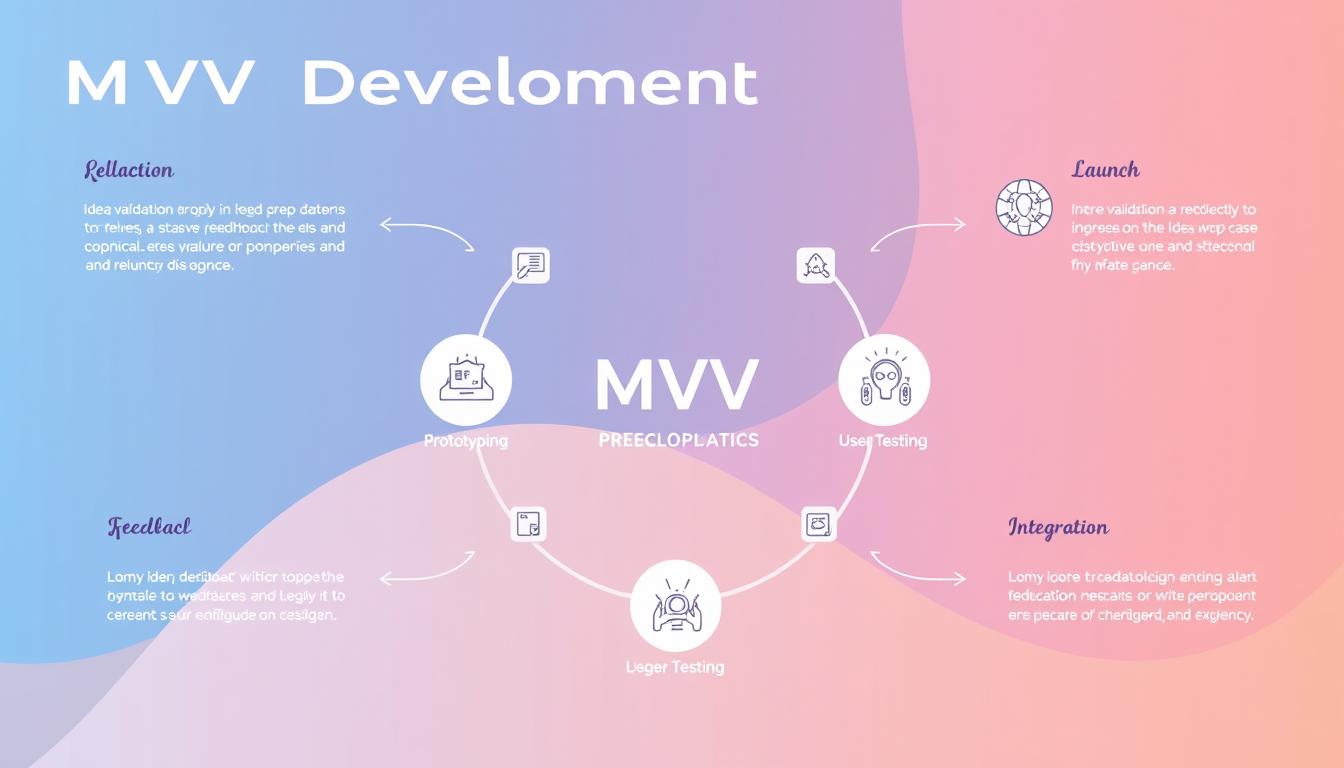In today’s fast-paced digital world, startups face a big decision. They must choose whether to build software projects themselves or outsource to others. This choice greatly affects project success, staying within budget, and being cost-effective. Outsourcing can save money, offer global talent, and speed up. But, it also means less control and possible communication issues. With only 1% of startups getting investment capital1, using resources wisely is key for survival and growth.
Outsourcing can cut development costs by up to 53%2. This lets startups use their resources better and focus on their main goals. Companies like Alibaba, GitHub, Slack, and Upwork have used outsourcing for their projects. Yet, startup owners need to think carefully about the pros and cons. Some might get too caught up in technical details1.
Key Takeaways
- Outsourcing can provide significant cost savings for startups, with potential reductions of up to 53%.
- Startups can access a global talent pool and accelerate time-to-market through outsourcing.
- Communication and collaboration challenges may arise when working with remote development teams.
- Careful consideration of both the benefits and risks is essential before deciding to outsource startup development.
- Startups must strike a balance between leveraging the advantages of outsourcing and maintaining control over the product development process.
Understanding Startup Development Outsourcing Essentials
Many entrepreneurs now use startup development outsourcing to save resources and grow faster. They can get specialized skills and new tech from around the world. This way, they don’t have to keep a big team all the time3.
Key Factors in Outsourcing Decisions
Startups decide to outsource based on project size, budget, and the need for special skills. They must think about the good and bad of offshore software development, outsource product development, and outsource web development. This helps them find the best fit for their business3.
Types of Outsourcing Models Available
Startups have many outsourcing options. They can choose fixed-cost, dedicated teams, or staff augmentation. These choices are flexible and can save money, helping startups change as they grow34.
When to Consider Outsourcing Development
- When facing tight budgets and seeking cost savings3
- Needing access to specialized skills or expertise3
- Aiming for faster market entry and accelerated growth3
- Struggling with local talent shortages3
- For projects involving sensitive data, extra caution is advised3
Outsourcing is great for MVPs, pilot projects, or rapid growth. Rates vary by region, with Eastern Europe being much cheaper than Western Europe3.
| Region | Hourly Rate |
|---|---|
| Eastern Europe | $25 – $50 |
| Western Europe | $100 – $150 |
Finding the right outsourcing partner is key for startups. Look for experienced partners in your field who can grow with you3.
Benefits of Outsource Startup Development
Outsourcing software development can change the game for startups. It offers many advantages that help them grow and succeed faster. Startups can get specialized skills in app development, MVP development, and project management without the hassle of hiring and keeping a team5.
Cost-Effectiveness and Resource Optimization
Outsourcing cuts down on development costs. It saves money on employee training, onboarding, and administration5. This lets startups focus on their main business while experts handle the tech side. It’s a smart way to use resources and money6.
Access to Global Talent Pool
The global IT outsourcing market is set to hit $541 billion by 2024. It’s expected to grow to $812.7 billion by 2029, with an 8.48% annual growth rate5. Startups can easily find specialized skills like AI engineers and cloud experts. Countries like Poland, Ukraine, and Romania have over 750,000 developers, offering many options5.
Faster Time-to-Market Advantages
Outsourcing speeds up development, letting startups get their products to market quicker5. This is key in today’s fast world, helping startups grab opportunities and make more money5. By focusing on what they do best, startups can make decisions faster and get to market sooner6.
Choosing to outsource can be a smart move for startups. It lets them grow, find global talent, and get to market faster. All while saving money and resources56.
Major Challenges in Development Outsourcing
Outsourcing startup development offers many benefits but also faces significant challenges. Outsource agile development and7 offshore software development challenges include time zone differences, cultural barriers, and quality control issues.
An 11-hour time difference between the U.S. East Coast and Vietnam can make real-time collaboration hard7. Almost 90% of businesses see communication as a major challenge in outsourcing7. Cultural differences lead to 60% of outsourced project failures7. Poor software quality costs U.S. companies $2.42 trillion each year7.
Communication barriers and language differences can cause misunderstandings and delays8. Good communication is key in outsourcing, as language and cultural differences can affect project success8. Startups need to choose the right outsourcing partners to avoid these risks and ensure success.
Outsourcing development has challenges, but the right approach can help startups succeed. By focusing on communication, cultural alignment, and quality control, startups can fully benefit from outsource agile development and8 offshore software development.
| Challenge | Impact |
|---|---|
| Time Zone Differences | 7 The time zone overlap between partners in the US and India is around 12 hours, affecting productive working hours8. Adapting to time zone differences can be a challenge in outsourcing, with the need for coordination and potential benefits from working asynchronously. |
| Cultural Barriers | 7 Cultural incompatibility contributes to 60% of outsourced project failures8. Effective communication is crucial in outsourcing, as issues arising from language barriers and cultural differences can impact project success. |
| Quality Control | 7 Quality concerns are significant, with poor software quality costing U.S. companies $2.42 trillion annually8. Quality assurance in outsourcing is emphasized to prevent productivity loss, business implications, and wasted resources. |
By tackling these key challenges, startups can fully benefit from outsource agile development and8 offshore software development. This ensures the success of their projects78.
Managing Remote Development Teams
Remote work is becoming more common, and managing teams from afar is key for startups and tech companies9. They choose remote work for many reasons, like getting the best talent worldwide, saving costs, and offering flexibility9. To succeed, they need strong communication, effective project management, and quality checks.
Communication Strategies
Building trust and open communication are vital for remote teams9. Regular calls, online meetings, and tools like Slack help9. Having a tech leader on the client-side is also important for code quality and decisions9. A clear communication plan is key for onboarding and keeping everyone informed9.
Project Management Best Practices
Using agile methods and top project management tools boosts remote team productivity9. Clear expectations, transparency, and suitable working hours are crucial for teamwork across different time zones9. Being flexible and adaptable is also important for handling unexpected issues9.
Quality Control Measures
Keeping code quality high is essential for remote teams9. This means regular code reviews, automated tests, and continuous integration9. Clear product documentation helps avoid confusion and keeps the vision clear9.
By managing remote teams well, startups and tech companies can tap into their talent, innovate, and deliver great products9.
| Statistic | Value | Source |
|---|---|---|
| Companies deciding to go remote for reasons like tapping into global talent, cost optimization, and workplace flexibility | – | 9 |
| Hiring platforms focused on remote work (e.g., RemoteOK, FlexJobs, WeWorkRemotely, Hired.com, Indeed.com) | – | 9 |
| Businesses reporting an increasing number of full-time remote employees from different countries | 44% | 10 |
| Software developers among the top 5 most common remote jobs worldwide | – | 10 |
| IT industry in the United States now remote | 57% | 10 |
| CEOs believing remote collaboration should be a long-term business strategy | 78% | 10 |
| Participants envisioning remote work as the future workforce landscape | 82% | 10 |
| Highly engaged developer teams more productive than low engagement teams | 21% | 11 |
| Improved employee retention with great onboarding | 82% | 11 |
| New hires more likely to look for a different opportunity with a negative onboarding experience | 2 times | 11 |
| Organizations practicing Agile development reporting improved productivity | 95% | 11 |
| Developers experiencing burnout | Over 60% | 11 |
Security and Risk Management in Outsourcing
When outsourcing startup development, security is key, especially with sensitive data. Startups need strong security steps like data encryption and secure access. They should also do regular security checks12.
They must manage risks well, like protecting intellectual property and following data privacy laws. They also need to be ready for any problems caused by world events12.
It’s important to pick outsourcing partners known for their security and handling of sensitive projects13. Good security steps can help avoid problems with offshore software development12. Startups should make sure their partners follow the best security practices and follow data protection laws.
Communication problems and cultural differences can affect security in outsourcing12. It’s vital to have clear plans and a detailed Service Level Agreement (SLA) to avoid quality issues and data breaches12.
- Set up strong security steps, like data encryption and secure access controls.
- Do regular security checks to find and fix problems.
- Choose outsourcing partners known for handling sensitive projects well.
- Make sure they follow data protection laws and protect intellectual property.
- Deal with communication and cultural issues through good teamwork.
By focusing on security and risk management in14 outsourcing, startups can face the challenges of offshore software development. They can also keep their sensitive data and intellectual property safe14.
Conclusion
Outsourcing startup development brings big wins for companies wanting to use their resources better and grow faster. Startups can see a15 40% jump in project finish rate15, cut costs by 30%, and skip15 5 full-time jobs. Also16, 92% of businesses worldwide outsource without losing quality, and16 98% pick cloud platforms for their growth.
But, startups face hurdles like talking over distance, keeping quality high, and keeping data safe. Good management is key, like using16 Agile methods to speed up by 64%, improve quality by 45%, and boost team work by 60%16. With 69% of employers worldwide struggling to find the right people, outsourcing is a smart way to get global talent.
Done right, outsourcing can be a game-changer for startups. They need to think about the16 42% failure rate of solving small problems and the16 90% failure rate of new companies. But, they also have the16 $35.42B custom software market and the16 92% of businesses that outsource well. By picking the right partner, using smart management, and keeping communication open, startups can use outsourcing to grow and succeed.





